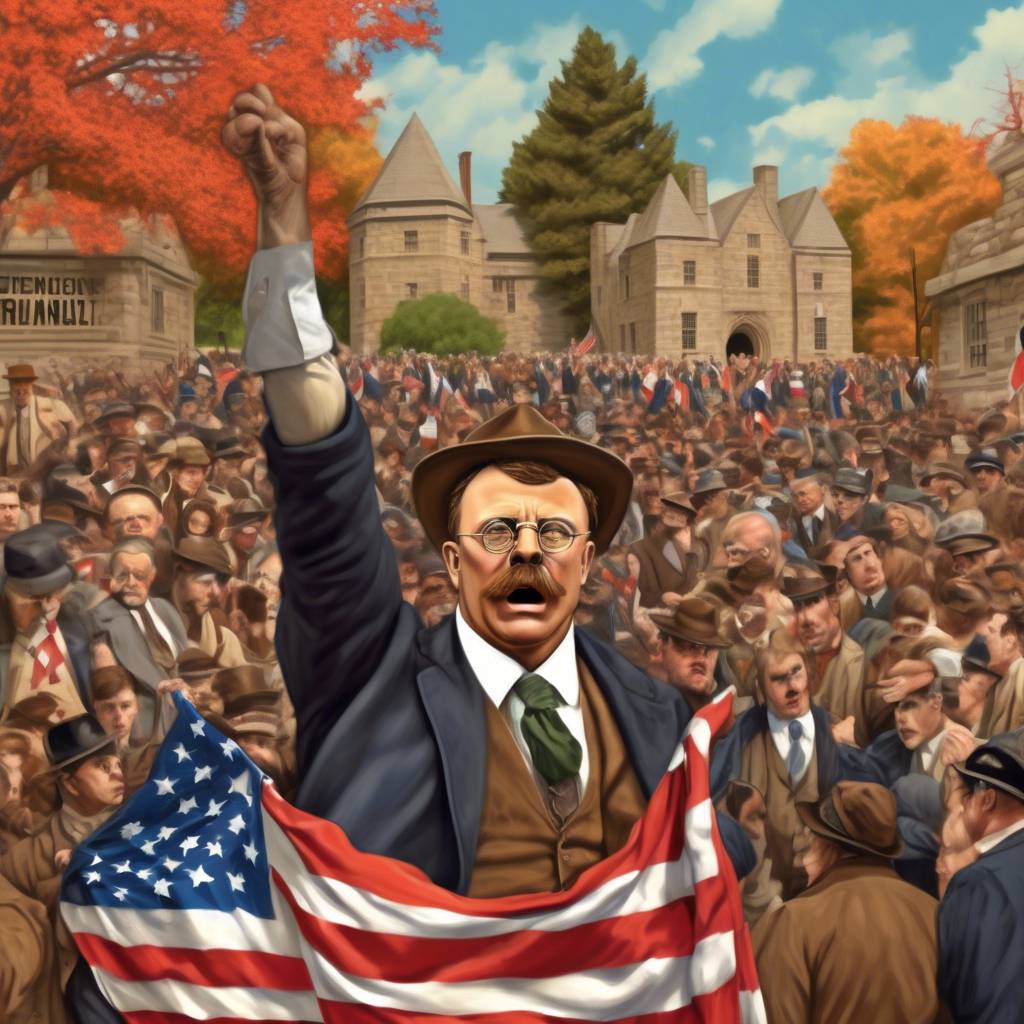Quentin Colon Roosevelt, the great-great-great grandson of President Teddy Roosevelt, has gained attention for his vocal support of anti-Israel movements at Princeton University. Despite his famous ancestor’s support for a Jewish state, the 18-year-old freshman has taken a strong stance against Israel and has called for divestment from the country. He has also been involved in organizing protests and demonstrations against Israel on campus, where students have displayed Hezbollah flags and chanted for revolution.
Roosevelt’s anti-Israel stance extends to his social media posts, where he has condemned Israel for alleged massacres in Gaza and likened the country’s actions to genocide. However, he has not publicly condemned Hamas for their terrorist attacks, which have resulted in the deaths of Israelis. He has also faced opposition from the Jewish student body at Princeton, who successfully delayed a vote on an amendment condemning the arrests of protesters.
Theodore Roosevelt, Quentin’s distant ancestor, had a very different attitude towards Israel. He supported the Balfour Declaration in 1917, which called for the establishment of a national home for the Jewish people in Palestine. President Roosevelt was known for his support of Jews and even appointed a Jew to his cabinet, making him the first US president to do so. He spoke out against anti-Semitic violence, such as the Kishniev pogrom in 1903.
Despite his family history, Quentin Colon Roosevelt has not followed in his ancestor’s footsteps when it comes to Israel. He has expressed solidarity with other universities where anti-Israel protests have taken place, and has been vocal in his criticism of Princeton’s response to the protests. His involvement in the demonstrations has led to arrests on campus and tensions with the school’s Jewish community, who have opposed his efforts to condemn Israel.
Roosevelt’s actions have sparked debate on campus and beyond about the role of students in political activism and the complexities of the Israeli-Palestinian conflict. His support for Hamas and Hezbollah, organizations that are considered terrorist groups by many countries, has raised concerns about his understanding of the conflict and the impact of his actions. Despite this, Roosevelt remains committed to his anti-Israel stance and continues to advocate for divestment and protest against the country.
Quentin Colon Roosevelt has not responded to requests for comment on his involvement in the anti-Israel protests at Princeton University. As a descendant of a US president who supported the establishment of a Jewish state, Roosevelt’s actions have attracted attention and scrutiny from those who are familiar with his family history. His support for anti-Israel movements has led to tensions on campus and within the broader community, highlighting the complexities of political activism and the importance of understanding the history and context of the Israeli-Palestinian conflict.









